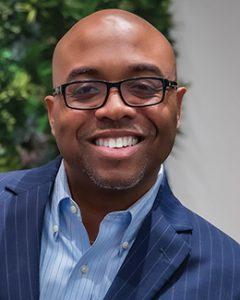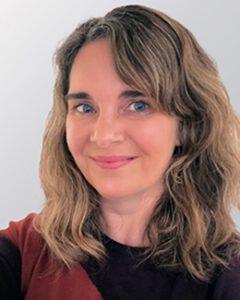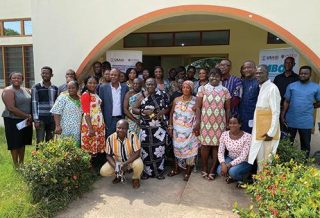IDEAS
Professional learning helps principal address achievement gap
By Jefna M. Cohen
Categories: Continuous improvement, Equity, LeadershipOctober 2023
Rodney Walker, a member of Learning Forward’s Academy Class of 2022 and principal of Brooklyn Park Elementary School in Baltimore, Maryland, was named 2023 National Distinguished Elementary School Principal of the Year by the Maryland Association of Elementary School Principals.

As a part of Walker’s efforts to advance schoolwide excellence, he and his team have focused on closing achievement gaps, particularly for Black male students. A facet of that work was Walker’s creation of Boys of Distinction, a mentoring group that provides educational and experiential opportunities for Black males. Walker attributes his school’s success to his dedicated staff and his work with Learning Forward on ongoing, high-quality professional learning.
Learning Forward talked with Walker about the impact of his work with the Learning Forward Academy. This article has been edited and condensed.
How did you get involved with Learning Forward?
Learning Forward always has great articles, which I have put in my weekly newsletter and I use for professional learning for my teachers. At one point, I found information about the Learning Forward Academy, applied, and was accepted. I’m a part of the group that got extended time because of COVID-19, and it’s been wonderful to have this additional time.
Being able to go to the conferences has been amazing. I’ve been to other professional conferences, and no one does it like Learning Forward. The level of professional learning is aligned to the daily work of a principal. The diversity of the sessions is really awesome. These include wellness or health, equity, instruction, data analysis, and community. If you’re going into equity, you can do that. If you’re going into emotional well-being, you can go to those sessions.
How has professional learning shaped your career and work?
The academy has shaped a lot of my work. When my academy group was together recently, we reviewed each other’s problem of practice, discussed our problem of practice, and discussed conflicts and pinch points we faced with it. As a group, we were talking about attendance, and the issues our respective districts faced after COVID, and I shared that my school has struggled with chronic absenteeism. Later, I got an article [on that topic] from my colleagues. The professional community and support have helped all of us shape our problems of practice.
What was your problem of practice in the Learning Forward Academy?
My problem of practice was about closing the achievement gap between African American and white male students, and it wasn’t just a problem of practice on paper for me, as an African American male. This is also the focus of my dissertation work. There’s been a gap between African American boys and their white male counterparts that’s existed for a long time. Nationally, when you look at test scores, that gap is approximately 30%, and it’s growing. To close that gap, African American boys’ academic growth needs to accelerate.
We have been able to close that gap in our building, where about 25% of the student population is Black. From the 2021-22 school year to 2022-23, the percentage of African American boys scoring proficient or above on the state assessment rose from 28% to 34%, showing a high rate of growth. During the same period, that percentage also rose somewhat for white boys, from 21% to 25%.
Similarly, in math, the percentage of students scoring proficient or above remained fairly constant, especially for African American boys (25% in 2021-22, 24% in 2022-23), despite the fact that math scores have been decreasing at the national level. Many of our students, including African American boys and economically disadvantaged white boys, continue to struggle, so we still have work to do. But we are improving and closing gaps.
Part of the way we did that was through the protocols, procedures, and feedback I learned in the Learning Forward Academy and through collaborating with other academy educators from around the country. Some of their suggestions and feedback were instrumental and allowed me to plan professional development, structures, and support to close the gap.
Now I’m continuing that same problem of practice and working to not just keep that gap closed, but I’m pushing for advanced rigor, because many times African American students are not identified for gifted education. This year, I’m offering additional professional development for my teachers to identify traits of giftedness.
What are some of the protocols that informed your work?
One of those is the teaching point of view, a document that summarizes our work and our why. For our cohort, our work is not just professional, but personal for many of us. The personal connection gives a different perspective, focus, and dedication to the problem of practice. When you go to work, you really need to know your why.
For me, closing that achievement gap goes back to my dad, who grew up in rural Alabama. Dad was not able to finish his education past the 5th grade. He provided educational opportunities for me, and I wanted to give back when I returned to Baltimore. I started teaching 22 years ago in Baltimore City, after changing careers.
I witnessed the poverty, knew some of the constraints that Black boys face in the inner city — it’s so hard to get out of it. This work is important to me because I want to give kids two things: hope and a chance. Education is really the way to do that. For me, it’s personal. It’s your purpose that drives your work, about giving your very best.
A ''teaching point of view'' summarizes our work and our why. A deep connection to the work provides perspective, focus, and dedication. When you go to work, you really need to know your why. #EdLeadership Share on XHow did Boys of Distinction come about, and what are some of the program features?
The state of Maryland came out with two different reports about the disparities between African American boys and their peers, including lower academic performance, higher referral and suspension rates, and higher referrals to special education. Based on the report Transforming the Culture of Maryland’s Schools for Black Boys (Maryland State Board of Education, 2021), there was an opportunity to start an African American boys’ mentoring club, which was a statewide initiative. We got the funding in January 2021 and started with grades 3-5. This last year we brought in some 2nd graders.
It’s an hour after school twice per month. We start off every Monday with a chant. We have a poem that we read that’s about saying, “I am strong, I am successful, my hair is curly and that’s OK.” The boys love it. We start the daily program with personalized instruction through i-Ready (a digital platform that tailors tasks to students’ needs based on a computerized assessment). We’ve done some team-building activities and some community service work that’s been great.
A large portion of the funds [for it] goes toward paying the teachers, and it gave us the opportunity to do some really creative, out-of-the-box things. For instance, I brought in a police officer and had them talk to the boys about careers in law enforcement. The only way we’re going to be able to heal is to have police departments understand what African American boys are facing.
But also, how about these boys becoming change makers and agents for change in their communities by going into law enforcement? That was really impactful. We also had some central office folks come out so they could explore careers in education. And we are building in college experiences, like attending sports games.
Have you seen any cultural shifts in your school as a result of this mentoring program?
Students are getting experiences that parents wouldn’t be able to provide for them. Staff are giving up time after school and on the weekends, and the boys are benefiting from that. They see folks that look like them — but also people who don’t look like them — who care about them being successful. That’s impactful.
There were some people in our building who didn’t want this program, some teacher pushback. [The message was,] “You’re not doing this for everyone.” I had to have some really courageous conversations about it. Some staff members didn’t understand the true meaning of the program.
What do you want to do next?
This year will be our third year of the Boys with Distinction program, and I want to continue to build on that same success. Our population is shifting and 40% is Latinx, so I want to do something similar for Latinx boys. Second, we want to build on the work in 2nd grade and then go down to kindergarten and 1st. Some of the data show the highest suspensions are in pre-K. We also want to build capacity in our teachers and identify primary students to support.
A huge part of this work is inclusiveness, the feeling that “my school cares about me.” We are a community school this year, so we’re looking at using some of that funding for some of these groups, but also for all of our families. The goal of community schools is to end generational poverty, and our school goal is similar — it’s to end generational poverty for African American boys.
What else is on the horizon?
Attendance. Our big thing is getting the kids to school. We’ve been struggling with parents on seeing the importance of sending their kids to school. Last year, we were averaging 40 late kids per day, so we will be attacking that this year. We will have someone call parents to let them know instruction starts at 8 and that we need them here at 7:40 for breakfast. And then we have community-building circles to build communities. When your child is late, they’re playing catch-up, and that is anxiety-producing.
Is there anything else you’d like to share with The Learning Professional’s readers?
It’s not about me, it’s really about our students and the staff that has supported this work. I’m appreciative of Learning Forward and for having the professional learning opportunities I’ve had. The Learning Forward Academy was a key reason my school was able to close the achievement gap.
Download pdf here.
About The Learning Forward Academy
The Learning Forward Academy is Learning Forward’s flagship deep learning experience, committed to increasing educator and leader capacity and improving results for students in the ever-changing landscape of education. For over 30 years, the academy has supported the problem-based learning of teachers, teacher leaders, instructional coaches, principals, regional leaders, superintendents, and others whose jobs involve supporting the learning of other adults and students.
References
Maryland State Board of Education. (2021). Transforming the culture of Maryland’s schools for Black boys. Task Force on Achieving Academic Equity and Excellence for Black Boys & Maryland State Board of Education.

Jefna M. Cohen is associate editor at Learning Forward.
Categories: Continuous improvement, Equity, Leadership
Recent Issues
WHERE TECHNOLOGY CAN TAKE US
April 2024
Technology is both a topic and a tool for professional learning. This...
EVALUATING PROFESSIONAL LEARNING
February 2024
How do you know your professional learning is working? This issue digs...
TAKING THE NEXT STEP
December 2023
Professional learning can open up new roles and challenges and help...
REACHING ALL LEARNERS
October 2023
Both special education and general education teachers need support to help...










